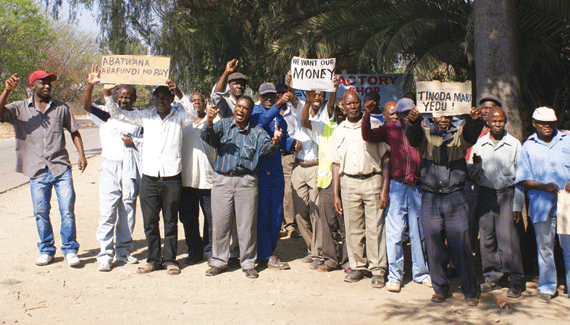
STRUGGLING Bulawayo firm Marvo Stationery Manufacturers has reduced the number of working days to two weeks a month for employees who have gone for 18 months without pay. MTHANDAZO NYONI OWN CORRESPONDENT
The short-time work is a concept used by companies in a bid to adapt to changing economic circumstances.
Marvo Stationery has been struggling to remain afloat for some time and a cash injection from the government and Old Mutual-run Distressed Industries and Marginalised Areas Fund (Dimaf) failed to change its fortunes.
According to a letter from National Employment Council (NEC) in printing packaging and newspaper industry to Marvo managing director, Saul Mashamba, the company was given permission to implement the short time week between this month and August.
“Further to your application to implement short-time up for a period of three months, the NEC retrenchment committee would like to advise you that your application has been granted as applied for,” part of the letter reads.
“The NEC retrenchment committee has considered that you and your employees agree in principle the need for such a measure to be implemented at your establishment.”
However, some workers said they were not consulted about the new arrangement. “The management is forcing us to go on short-time work, but failing to pay us our monies,” a disgruntled employee said. “We are disturbed by this behaviour and we are surprised by the government failure to help us.
“We have more than 20 workers who are over 65 years of age and they are supposed to retire, but Marvo is refusing to pay hence they are still there because they are finding it difficult to go home empty handed after serving the company for so many years. Others have more than 45 years of service at Marvo.”
- Chamisa under fire over US$120K donation
- Mavhunga puts DeMbare into Chibuku quarterfinals
- Pension funds bet on Cabora Bassa oilfields
- Councils defy govt fire tender directive
Keep Reading
The workers appealed to civil society groups and the government to come to their rescue.
“Marvo workers are appealing to non-governmental organisations and well-wishers to help them with food and school fees for their children because the situation is very bad,” another employee said.
“Some are failing to pay rent while others are living with relatives. Some of us have separated with our wives and children because of poverty.”
Mashamba refused to comment about the latest developments saying he did not find the introduction of short-time work newsworthy.
Last month about 50 workers stormed the Marvo management offices demanding their salaries.
The workers also wanted clarification on what happened to the Dimaf loan given to Marvo in 2012.










